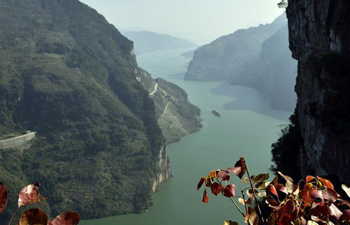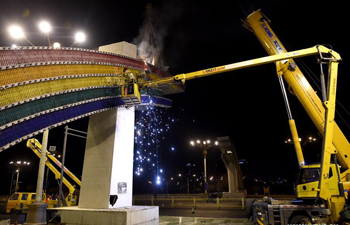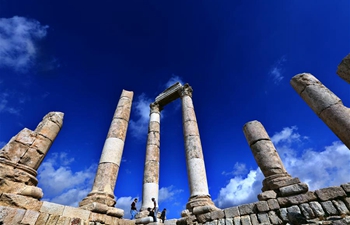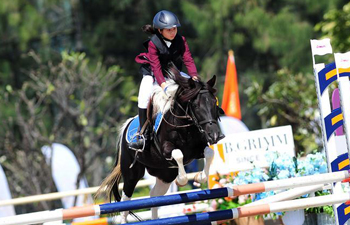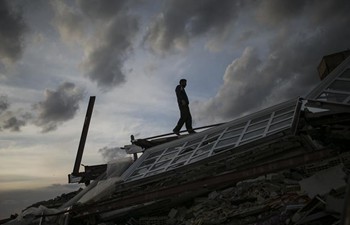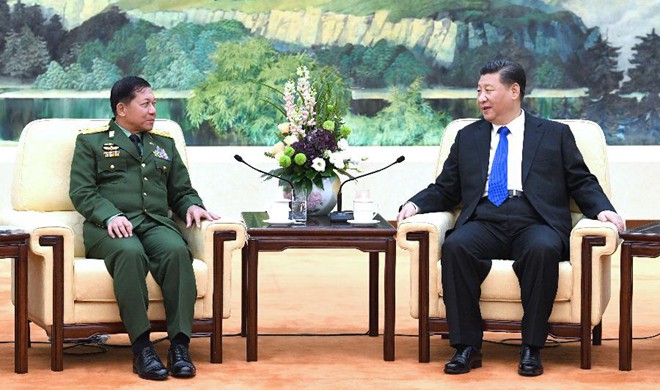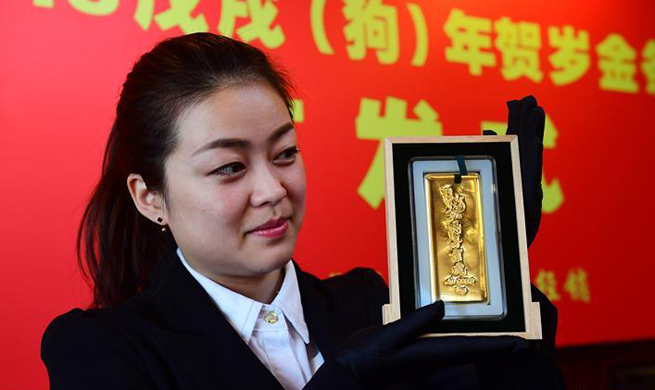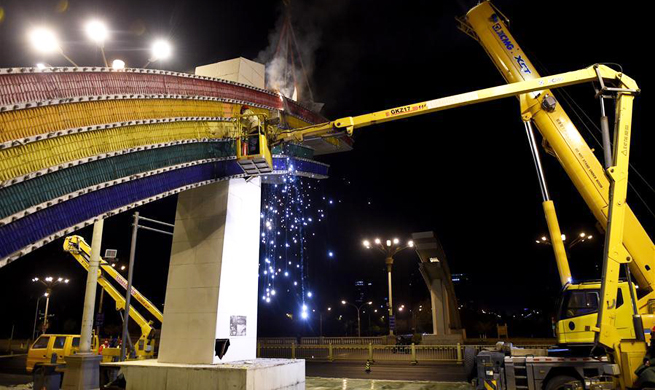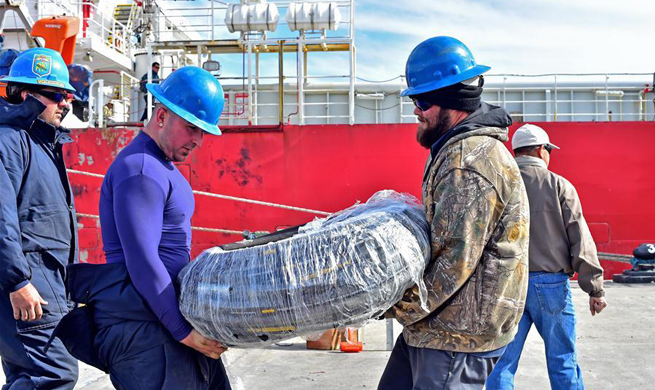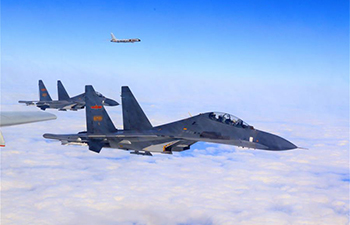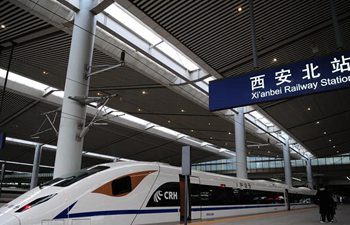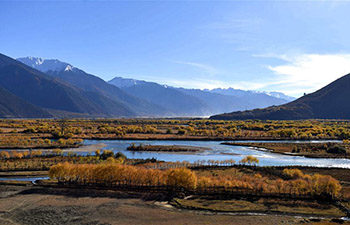by Raimundo Urrechaga
HAVANA, Nov. 25 (Xinhua) -- Cuba marked on Saturday the first anniversary of the death of revolutionary leader, Fidel Castro, amid political tensions with the United States and the beginning of an electoral process that may reshape its leadership.
Exactly one year ago, Cuban President Raul Castro announced to the world that his brother and historic leader, Fidel, died at 90 years of age.
Twelve months later, Cubans feel as if he were physically present and time hasn't erased an event that shocked this Caribbean nation and the world.
"We remember Fidel not with pain, but with our heart because thanks to him we are a sovereign country. Fidel for all represented an example of honesty, dedication, humility and love and that is why we will always remain loyal to him," Alina Cordovi, a state employee, told Xinhua.
After his death, the State Council decreed nine days of national mourning, and this year although normality reigns, many agree that Fidel's legacy and ideas should be remembered.
Throughout the country, tributes have taken place this week with book presentations, exhibitions, workshops, concerts, among other activities.
"Any homage to Fidel is small, many times he risked his own life for the well-being of Cubans and the sovereignty of our country. Today we remember him alive and with his ideas as a path for the future," said Vicente Ruiz, a 76-year-old citizen.
In the nine days of mourning, a national slogan came up naturally among Cubans. The phrase "I am Fidel" will last to remember him and a way for locals to swear allegiance to his ideas and legacy.
"We still feel a deep pain similar to when you lose a family member. But we have the belief that the only way for Fidel's ideas to last among us is to keep his revolutionary principles up high," Roberto Palacios, a state worker told Xinhua.
On Dec. 3, there will be a mass political event and vigil at the Antonio Maceo Revolution Square in Santiago de Cuba.
The next morning, there will be a pilgrimage from that place to the Santa Ifigenia cemetery to pay tribute to Castro on the same day his ashes were placed in the necropolis.
Fidel Castro never allowed personality cult, while discretion and simplicity always marked him.
As part of his political legacy, Fidel requested to not name parks, institutions or schools in his name and barred monuments with his figure.
Weeks after his death, Cuba's National Assembly approved a law which bans naming streets or squares and building monuments or statues with the name of Fidel Castro, in respect to the former president's last will.
"Fidel always repeated a lot of (Jose) Marti's ideas that 'all the glory of the world fits in a grain of corn' and I believe his legacy is the living presence of Fidel. We don't need a monument to remember him," said Orestes Rodriguez, a school teacher in Havana.
However, other Cubans believe that Castro deserves greater tributes due to the extent of his legacy.
"I do not agree; I think as Cubans we would be proud to have a university with the name of Fidel or a bust or statue where we remember our leader forever. If he didn't want it that way then we will have to respect his final will," Amarilys Cuesta, a private worker, told Xinhua.
ONE YEAR AFTER, CUBA AND ITS REFORMS
Twelve months after the passing away of the founding leader of the Revolution, Cuba continues its process of updating its economic model, although with financial restrictions due to the embargo imposed by the United States and the crisis in Venezuela, its main trading partner and political ally.
In the coming months, many expect reforms to be accelerated which will contribute to a greater role of the private sector in the economy, a gradual elimination of the double currency system and state decentralization, all goals set by the seventh Congress of the Communist Party in April of last year.
"We are still living the same process, with economic modifications but Cuba has not changed in the last year," said William Gonzalez, a 49-year-old private worker.
According to the Cuban Ministry of Economy and Planning, the annual growth goal should be only one percent this year due to the financial contractions the island faces.
One day after commemorating the anniversary of Castro's death, more than eight million Cubans will go to the polls to elect local delegates to the municipal assemblies of People's Power, the first step in the process of general elections in the island.
In the second electoral stage at a later date to be announced, Cubans will vote for delegates to provincial assemblies and the National Assembly.
Once the parliament is constituted in February 2018, its lawmakers will have to pick the president and members of the Council of State, moment when current leader, Raul Castro is expected to step down.
At the same time, U.S. president, Donald Trump, rolled back the opening with the island initiated by his predecessor, Barack Obama, and toughened the economic blockade limiting trade and travel with the Caribbean nation.
"This new situation with the United States really makes the progress we had made with Obama very difficult. Not only did we suffer emotionally a year ago with the loss of our leader, but now we have a complex situation with our neighbor," said Ronaldo Paredes, a university student.




